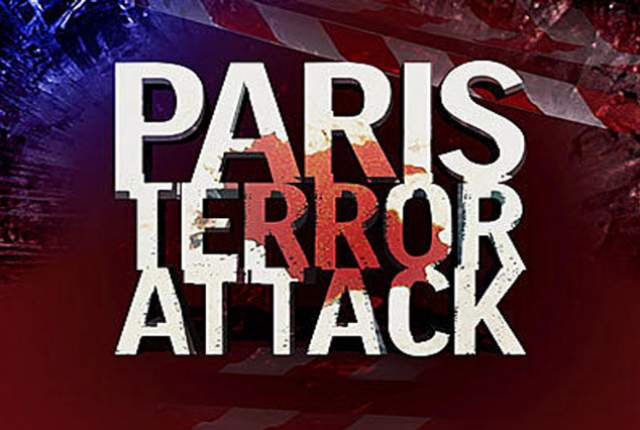The Paris attacks, their aftermath and war on terrorism are dominating the news headlines. But the terrible scenes from France have also prompted a more pronounced discussion on global sensitivity and selectiveness of the international media.
‘Yomi Kazeem, the Naij.com columnist, tries to understand why Nigerians seem to care more about deaths in Paris than deaths caused every day by Boko Haram in Nigeria.
In the wake of the Paris attacks, when the heart of one of the world’s most loved cities was hit leaving more than 120 dead, social media was awash with messages of support and concern. Everyone rightly condemned the heinous crime. The threat of terrorism was again proven to be as devastating as has been feared.
In a dramatic and moving show of humanity, Twitter users in Paris volunteered shelter for anyone in need.
Even though concern was genuine and heartfelt, certain sentiments were also apparent in some parts of the world, and especially in Nigeria.
It has been a while since Nigerians have shown the same level of compassion and empathy for attacks in Nigeria as has been shown for the Paris tragedy.
For different reasons, rather than be rightly appalled and horrified, terror attacks in the North-East appear to have become an accepted occurrence. The attacks that leave dozens of casualties and should be major news stories do not even make the front pages of newspapers anymore.
There may be several reasons for this phenomenon.
Shock value
The first few times bomb blasts occurred in Nigeria, it was clearly a shock. However, even though it is incredibly sad to say, the shock value has reduced. The frequency of such attacks have left us numb and made us accept a horrific state of affairs as “the new normal” on a subconscious level.
In Paris, New York, Cape Town and other places, terrorist attacks are not a daily occurrence, and as such, the shock value of these attacks remais high — as it should be.
In Nigeria’s North-East, a good number of gory attacks of the past few years have went unreported.
Psychological distance
While Nigerians are becoming more and more insensitive to the Boko Haram attacks, questions over the depth of international coverage have also been raised, and not for the first time. In recent days, similar sentiments have been expressed in Lebanon following the lack of coverage on attacks in Beirut.
Similar questions were asked in January, after the Charlie Hebdo shootings. The Paris tragedy occurred around the same time as a mass killings by Boko Haram in Baga, a town in Maiduguri. According to reports, as many as 2,000 people fell victims to the terrorists. Even though the staggering number was about a thousand less than the death toll of the 9/11 New York attacks, there was very negligible coverage – or concern – by international media.
At the time, Paul Slovic, a psychology professor at University of Oregon, linked this to a “psychological distance”.
“The psychological distance between us and France is smaller than the psychological difference between us and Nigeria,” Slovic explained in his research. “There’s a sense of personal vulnerability [in the Paris attacks] that I don’t think one gets from the Boko Haram attacks.”
Personal vulnerability drives concern after tragedies regardless of where they happen. For example, the survey by Pew Research Center has shown that Americans show more interest in attacks which happen in places they have been to or plan on visiting.
It can be said that the same psychological distance effect works in Nigeria as, with the attacks appearing mostly in the north, the rest of the country has remained mostly unaffected and thus do not feel any major vulnerability.
It might be because the attacks occur too frequently or too far away from where the rest of us are, but the attacks are all too real for the thousands who live daily in the fear of getting killed, maimed or kidnapped.
Perhaps it is because Paris, unlike the North-East, has not been subject to an insurgency in recent years, but regardless, Nigerians must collectively try to fight the urge to accept the “new normal” — hundreds of deaths right under our noses should never be normal.
Author: ‘Yomi Kazeem

